Pragpur, a quaint little village in Himachal Pradesh’s scenic Kangra Valley, became the first village in India to be branded a heritage village. Pragpur was founded in the late 16th century by the Kuthiala Soods in memory of Princess Prag Dei of the Jaswan royal family. With its winding lanes, wooden slate-roofed houses, the village looks nothing less than a miniature painting set on an aisle. As the story goes, in the early 19th century the prosperous Kuthiala Sood community arrived and settled here. These merchants who were well exposed to architecture and arts outside the area, returned to Pragpur to build buildings, chateaus and mansions in architectural styles they observed outside. With their efforts, Pragpur gradually transformed into a grand display of immaculate beauty and spectacular architecture that evolved as a perfect blend of Portuguese, Rajput and British styles. This reminded me of the unique way in which Shekhawati architecture of the havelis, cenotaphs, and stepwells has evolved, with designs taken from different cultures the traders got exposed to.
To experience the charm of Pragpur, take a walk through the village. The square shaped water pond, in the middle of the village, will lure you to spend some time around it. A village walk introduces you to the architectural beauty strewn across Pragpur. Built before 1868, the Taal is in the center of the village and is surrounded by several old community structures like the Nehar Bhawan, Naun, and Dhunichand Bhardial Serai. The village market by the pond is a bustling place and has an unlikely charm missing from most villages. At a stone throw away distance is the Lala Rerumal’s haveli, with elements of Mughal-styled architecture, and has a large water reservoir. Ancient temples, courtyards, even age-old windows and doors with intricate carvings, leave an everlasting impression on the travelers. Most of these houses exhibit fancy tile-work, ornamental towers, and stained glass windows. It’s like a world merged with old Himachali architecture, where you see an overuse of wood and pillars. Interestingly, the rooftops of these buildings have gables and slanted slopes, which is quite unique considering it seldom snows in the Himalayan foothills. The slanted slopes is a ubiquitous feature in the uphill Kangra and Kullu valley. The village committee is entrusted with restoring and conserving these architectural marvels.
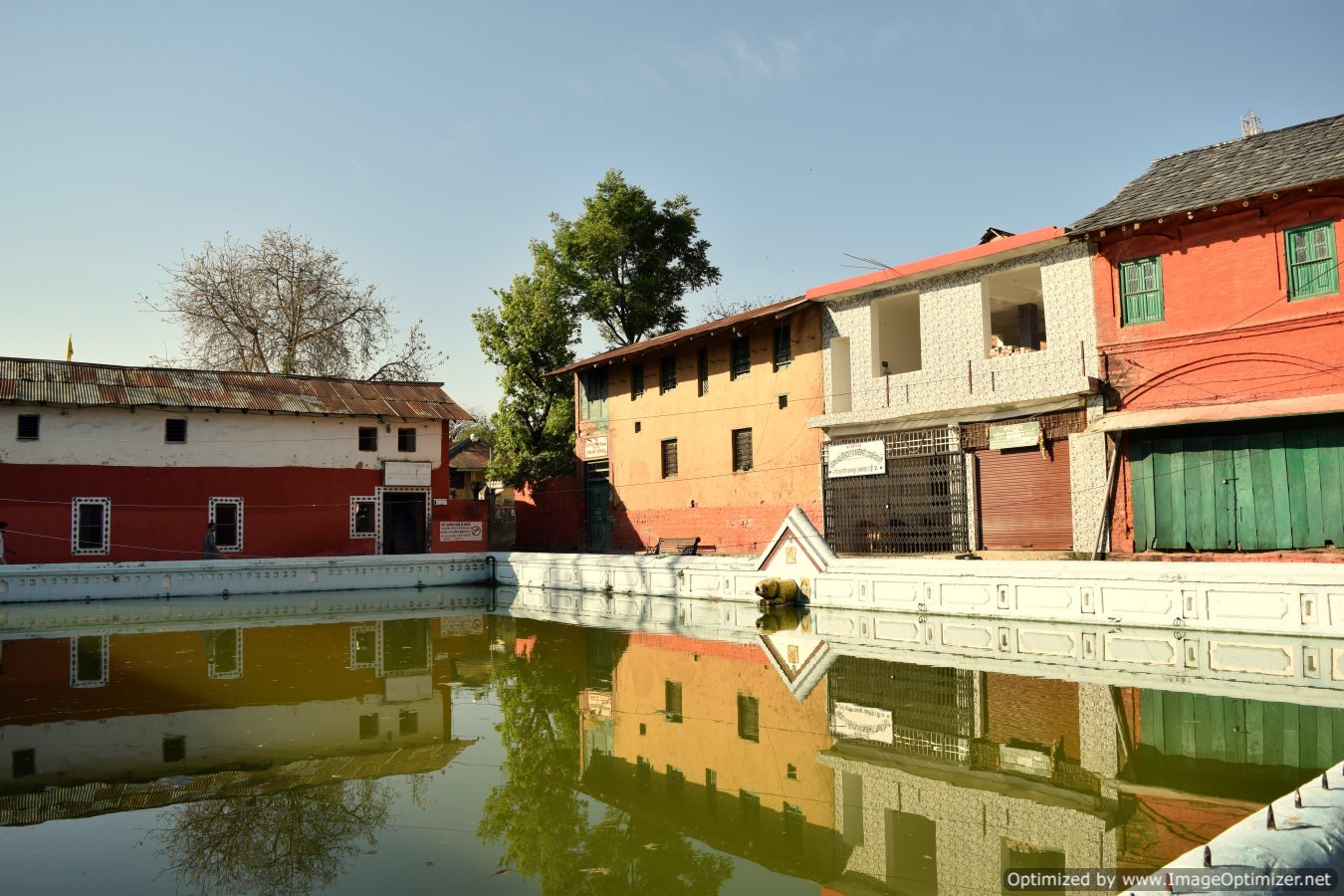
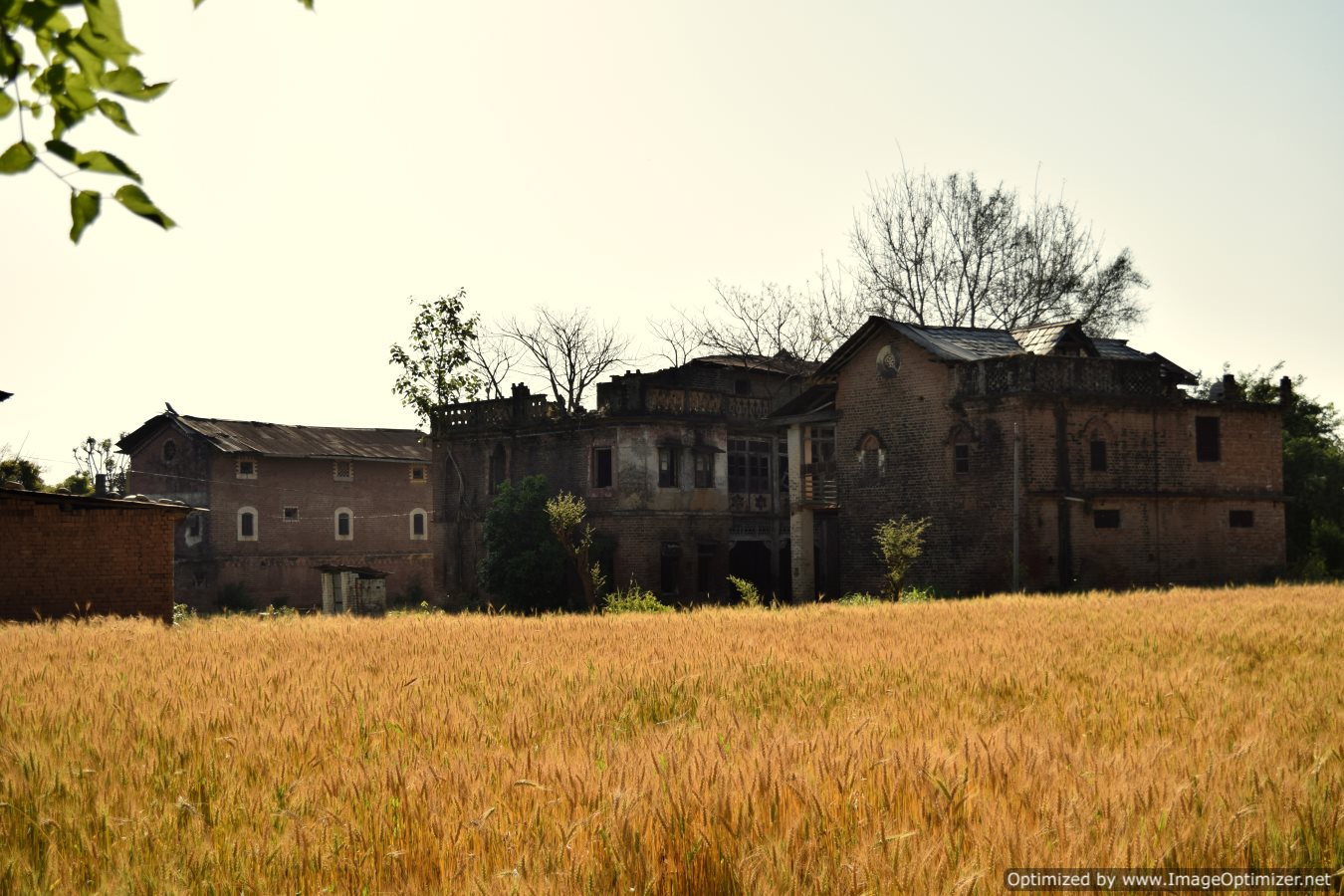
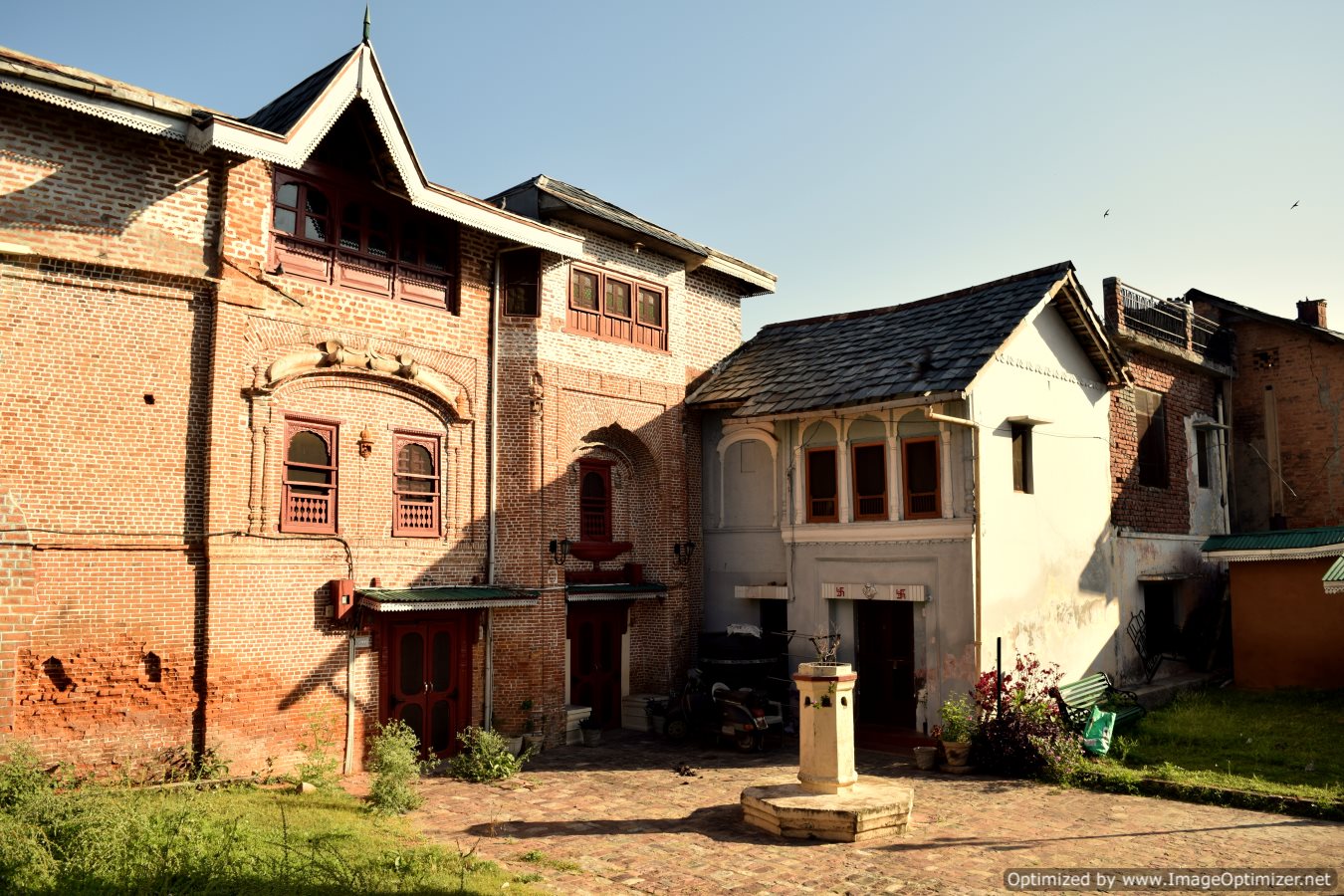
Another jewel in the Pragpur cultural mélange is the Judges Court. The Judge’s Court, the 300-year-old ancestral home of Vijai and Rani Lal, has now been converted into a heritage resort. Vijai Lal is the grandson of Justice Sir Jai Lal, the second Indian to become a Judge of the Punjab High Court. The story goes that for years the ancestral property was left unattended, before being restored and turned into a heritage hotel. Apart, from a nice stay-over, this two-storey brick-red mansion, steeped in history, offers an insight into life of one of the most influential families with roots in Pragpur.
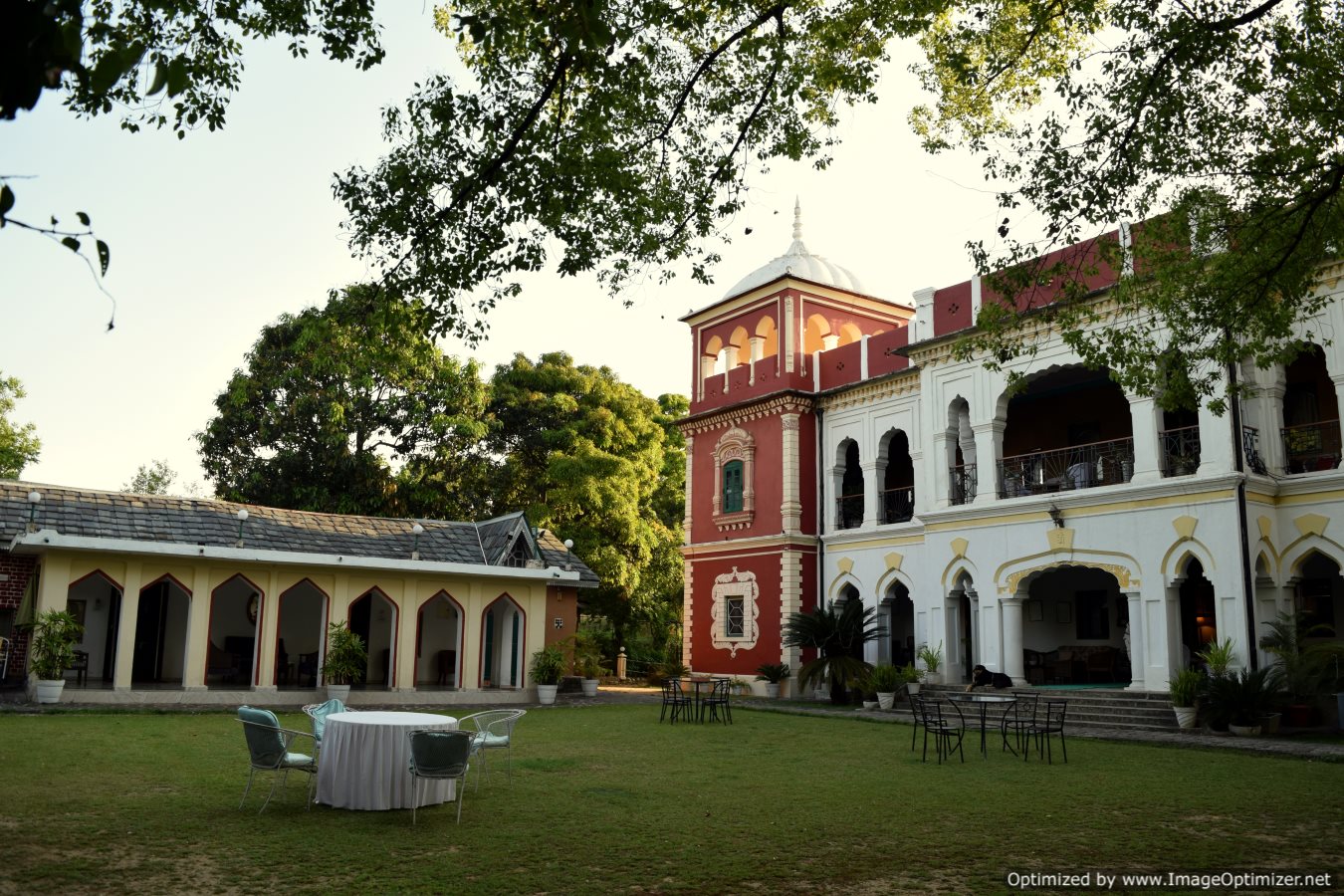
As you walk, Pragpur seems a busy and prosperous village, with a cultural history worth falling in love with. The cultural history seems well veneered with contemporary charm. All one needs is a nice little walk to live this experience.
Garli: The next stop
At some three kilometers from Pragpur, Garli is literally the next stop from Pragpur, on Shimla route. During their migration from Punjab, some Sood families settled in Garli, and started trading in timber. Some families who moved uphill used the Beas River to transport the logs downhill to Garli. Soon Garli had evolved into a major hub for timber business. With timber, came money, and with money prosperity. The old heritage buildings, some now converted into heritage hotels, are living tell-tales of those prosperous days.
A unique feature of architecture in Garli is the Anglo Islamic architecture of the mansions, marked by airy spaces in the mansion, intricate carvings on the doors and windows, courtyards outside the main building, and extensive use of pillars. Most of these private marvels lie in various stages of decay. Most buildings abandoned or occupied by the tenants and divided into many families. The upkeep is almost nil. Still, the out shells of these structures never fail to fascinate the travelers, and the upper turrets of these old buildings seem to dominate the entire village.
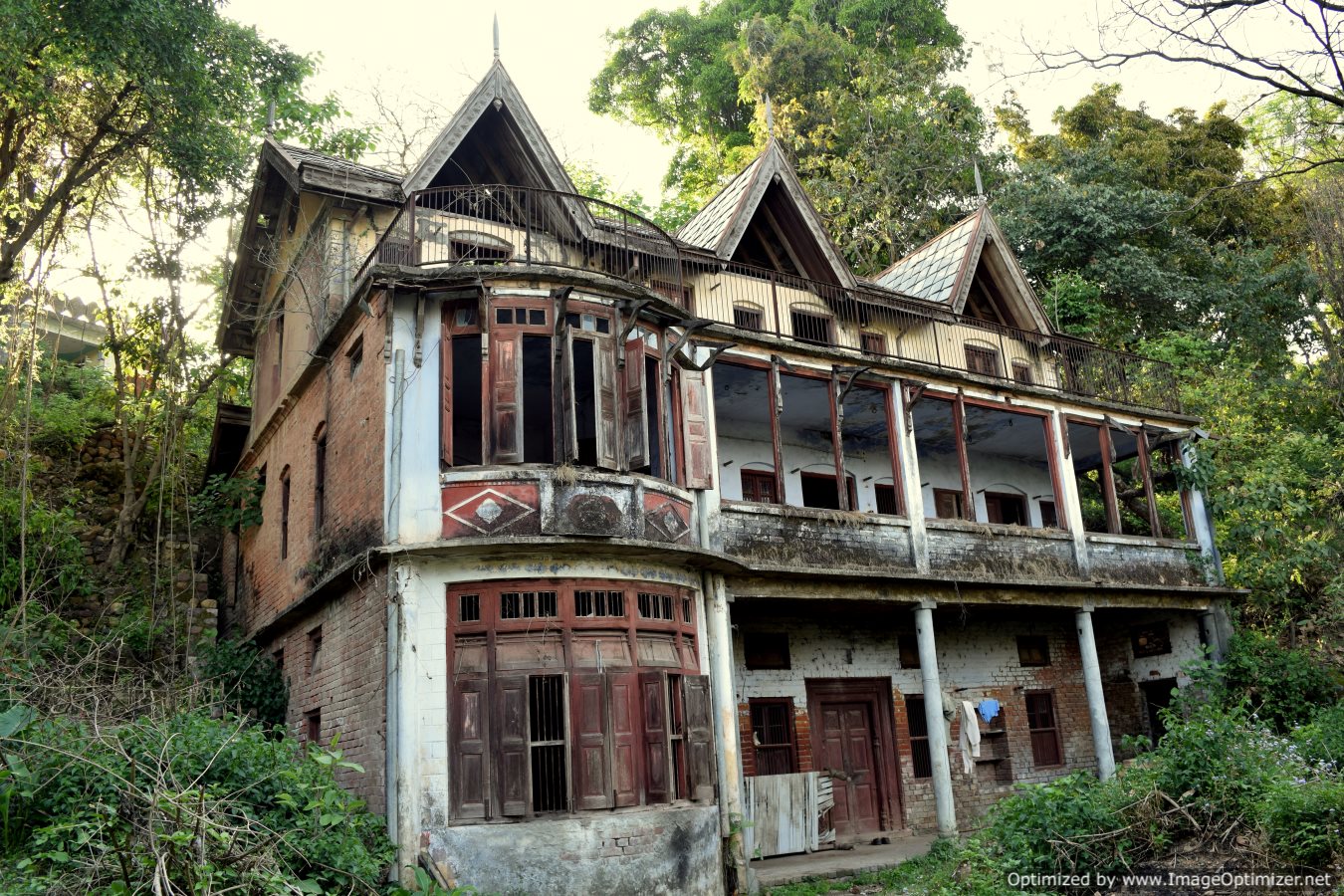
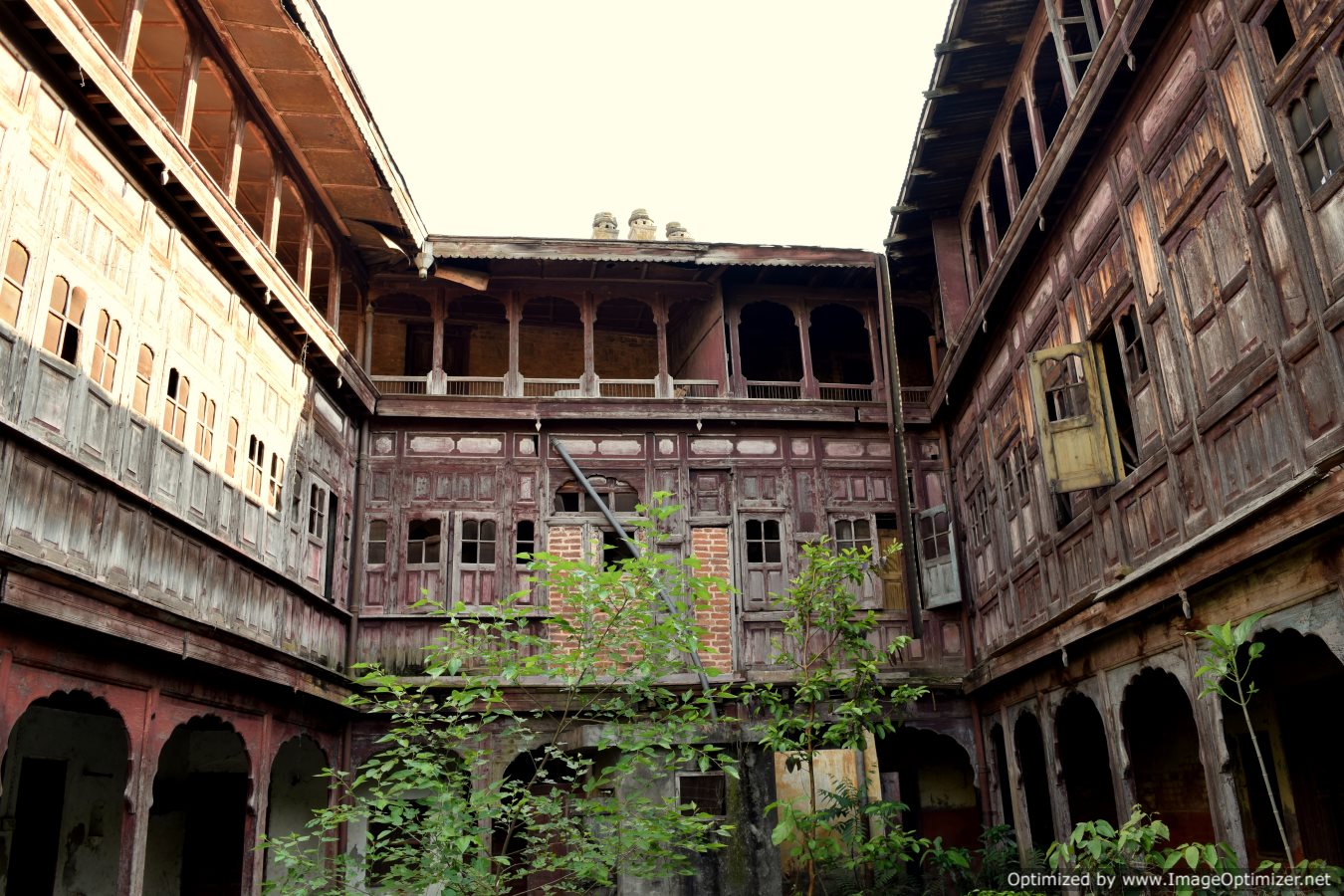
One of the marvels in the village – the Chateau Garli was restored and converted into a heritage hotel. The building was restored to its age-old glory by carefully recreating the colonial, Portuguese, Mughal, Rajasthani and Kangri architectural influences. The Chateau is a fine imprint of this heritage. The village of Garli offers experience through time.
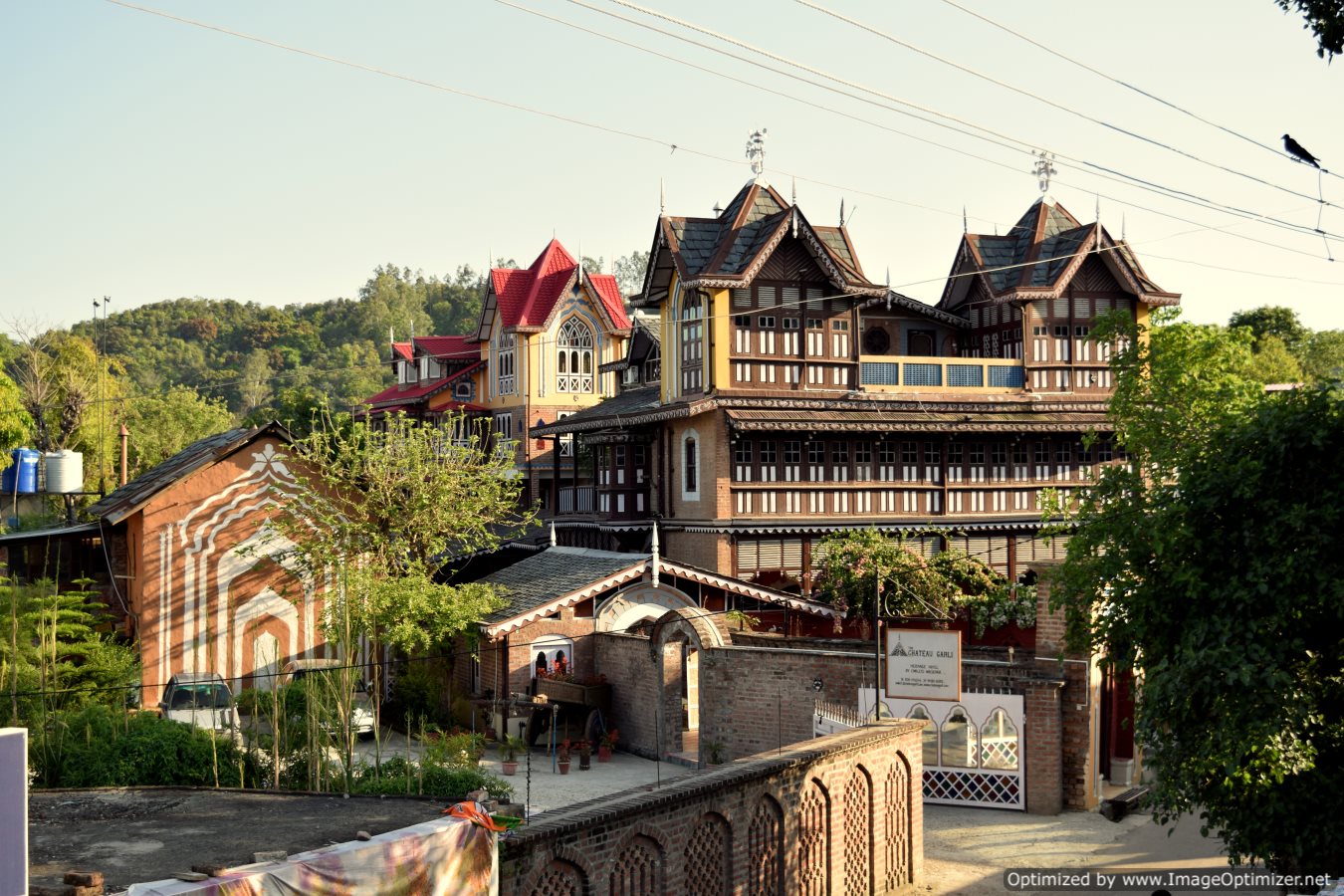
As I wandered through the village lanes, I came across many architectural marvels now left to ruin. One of the buildings the Bishnu Sagar, a splendid example of the dexterity in art and design that called Garli it’s home, lies abandoned today. And it isn’t the only one, there are scores of such buildings left abandoned today. And while Pragpur has worked to restore the old buildings, Garli presents a different side of the story. Nevertheless, the village serves as a beautiful reminder of our past. The village leaves you with a mix of emotions. The sheer awe of the historic charm, and history, the delight of hospitality, the bliss of natural beauty with Dhauladhar Range rising as a backdrop to this quaint village, to a sense of pity for the mesmerizing buildings that stands as beautiful ruins today. Only if the government or private sector has stepped forward to restore the old buildings, probably convert them into museums or homestays.
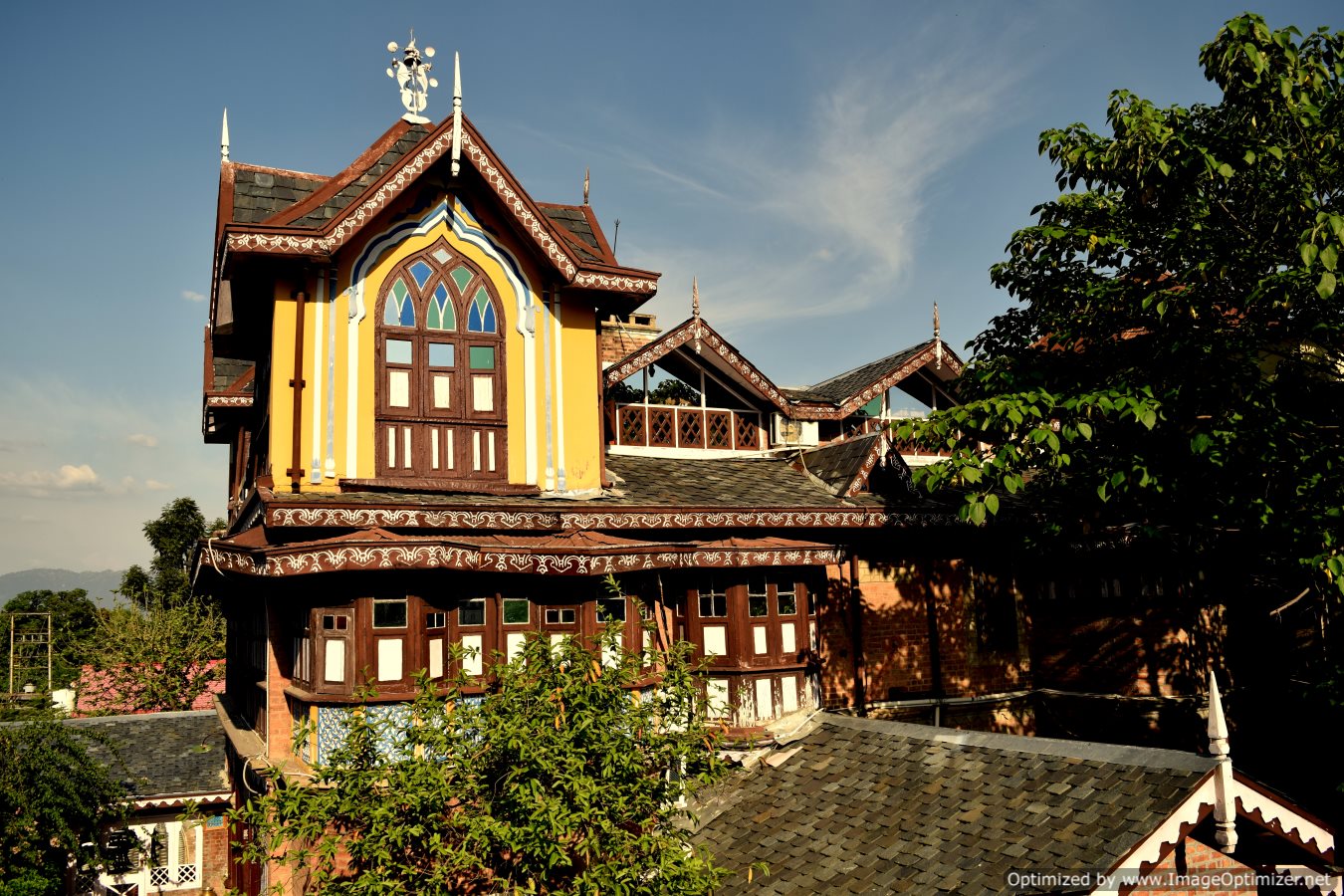
How to reach
Garli and Pragpur are well connected by roads from Chandigarh, Pathankot, and Delhi. There are regular buses from Chandigarh and Delhi, going to Dharamsala passing through Pragpur. The nearest railhead Amb is nearly 28 kilometers that get trains from Delhi. And the nearest airport is at Gaggal, about 50 kilometers from away.
Where to stay
Pragpur has many budget options to stay. For a luxury stay, one can opt to stay at Chateau Garli or Judge’s Court.










What a Beautiful heritage this.
Fortunately it is now recognised as a Heritage Village.
You have captured the images in their utmost beauty and glory.
Have written a fantastic prose of the account.
Such efforts are needed to enhance the culture and history of our land.
Thanks
Regards
Shiva
🎶🌷
Thanks a lot for your kind words. We definitely need more efforts to conserve this heritage.
What kind of weather it has?
Hey it’s never too cold as Himachal Pradesh. Summers will be pleasant, could get a little humid on bad days – winters is fun quite sunny. It doesn’t snow in the district. Some 1 hour from here is the Kangra, it gets cooler uphill from there.
Nice work keep it up
Really i love visiting villages! Himachal Pradesh’s scenic Kangra Valley, became the first village in India to be branded a heritage village.
Right, and the villages are amazing, so much of history and art captured in them
I had been in himachal prasesh in my college days. It is really an amazing place to visit. I specially like the weather.
You really described very nicely about heritage village in this blog. Next time If I get a chance to go himachal pradesh again, I would definitely visit all the heritage villages.
Yes sure, these small villages always remain off our list.